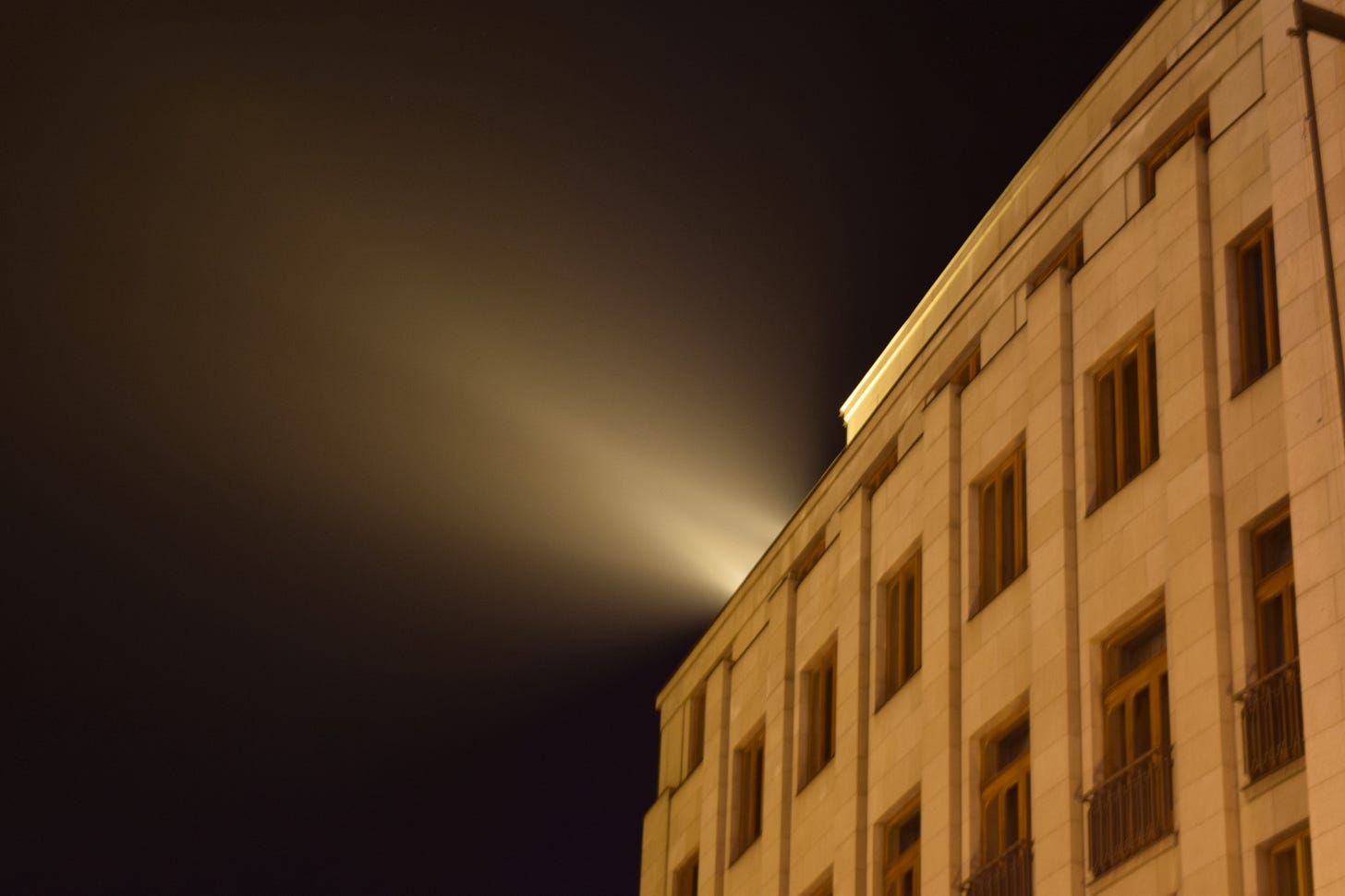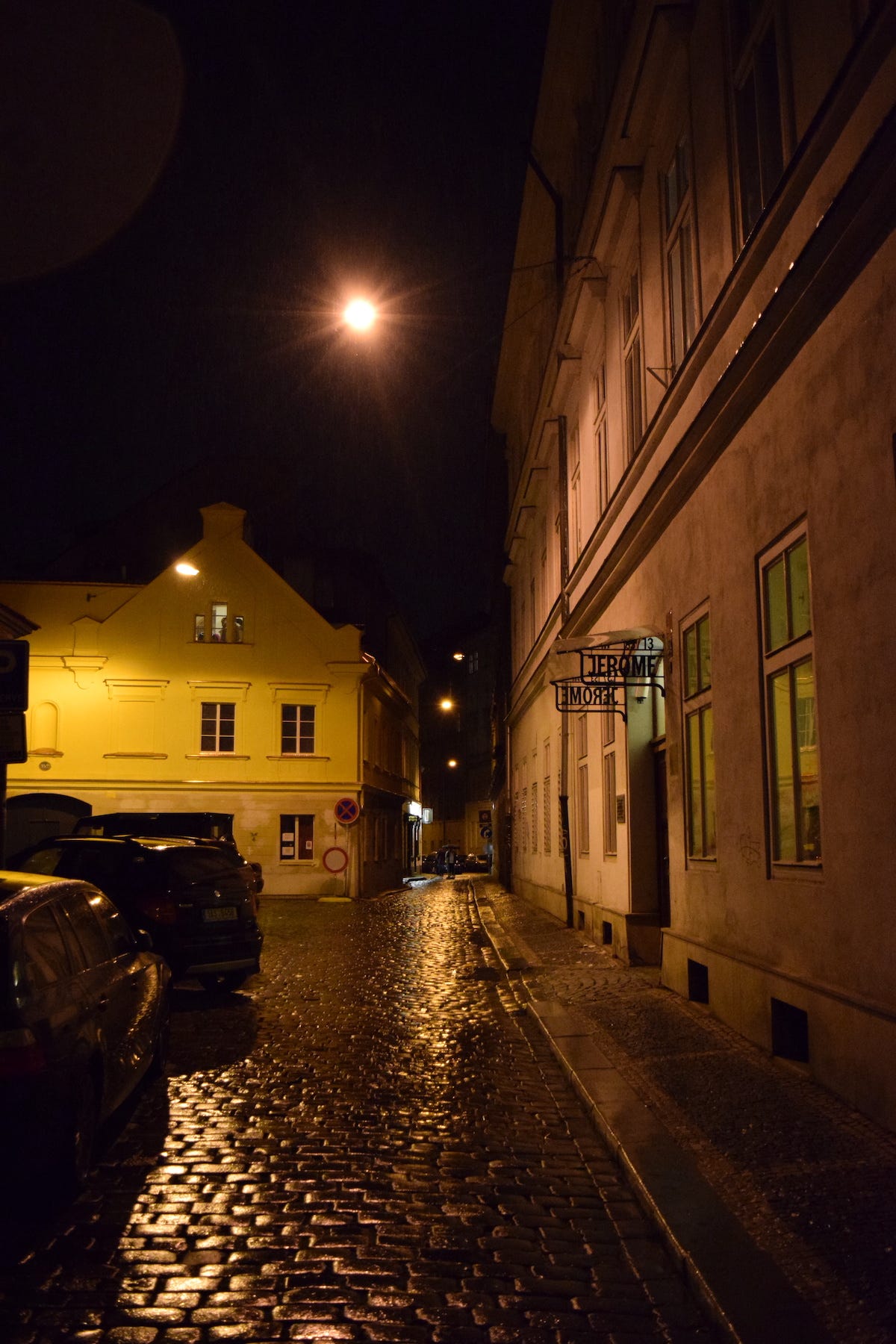Resurrection
This is Western Coffee—notes on building the creative body. Last time: Running. The whole series is here. Please share this email; you can sign up free below.
What you have conquered Will bear you to God.— Gustav Mahler, Symphony No. 2
Mahler’s Second Symphony is a piece I listen to only once or twice a year, sublimely easy to reach for and yet too precious to risk overexposure. But I couldn’t write about resurrection without its influence—it’s known as the Resurrection Symphony, because that’s what it is about, and in fact it once occasioned a spiritual resurrection for me—and so yesterday I cued up one of its landmark renditions, Leonard Bernstein conducting the New York Philharmonic in the early ’60s.
In a particularly harsh moment of the painful losing streak that followed my 2013 bike crash, I decided to book a trip back to Prague, where I’d “studied” as a college junior. (Subjects included getting obscenely high and going to three American movies in a single day; and falling into Matt Damon’s lap at our local bar, allegedly.) By coincidence, my arrival back there a decade on aligned with a music festival of the Czech Philharmonic, and night after night I reported to the ornate Rudolfinum hall near the Vltava River. Turned out in rags among a phalanx of locals dressed like Swiss bankers, I’d stand in a long line during intermissions that, by virtue of collective action, never ended until everyone had a glass of champagne.
Auspicious though it was, though, the music festival was not where I resurrected. That was a concert elsewhere in town, at a venue humbler but in possession of a pipe organ, which comes tectonically into play in the last movement of Mahler 2. Curious clusters of music stands and chairs arose not just onstage but also through the marble corridors outside the hall, and when the concert was beginning, a vast choir wearing black processed into benches high above the players, where they spent most of the 90-minute performance glowering in silence. The main orchestra was joined in various moments by tunes filtering in from the musicians outside: now hints of a marching band, now a heavenly fanfare. I’ve never experienced a more atmospheric performance of music, a world of purely musical constitution: There was, other than the dramatic weight of the silent choir and the placement of the out-of-sight instruments, no staging. Just music. Having known nothing of this work before, I was overcome, saturated. During the endless applause, I booked a ticket for the following night. By the end of the second time through, something had turned over deep inside me.
Mahler’s contemporary Marcel Proust wrote—in his novel, published shortly after Mahler’s early death—about the time-defying nature of sound and touch through which past sensory experience springs on us anew:
“The truth surely was that the being within me which had enjoyed these impressions had enjoyed them because they had in them something that was common to a day long past and to the present, because in some way they were extra-temporal, and this being made its appearance only when, through one of these identifications of the present with the past, it was likely to find itself in the one and only medium in which it could exist and enjoy the essence of things, that is to say: outside time.” (my emphasis)
Proust is describing one kind of resurrection, and I don’t wish to export the concept sloppily. But: If such bridges can be seen to exist between past and future selves—outside time!—it’s a fair hypothesis, I think, that involuntary sensory memory is not the only one. Music, whose off-the-shelf features include that it recurs in familiar forms across our lives, can perform a function that is cousin, at least, to Proust’s. (Indeed, music calls up, quite painfully, the essence of a lost reality to one of his characters.)
Toward the end of my trip I found myself back on the street where my classmates and I had lived. The neighborhood had undergone significant changes, but in this little length of V Jirchářích nothing wavered: the damp of rain on cobblestones, the street lamp’s sodium glow. Prague is so old in some places that it can’t get any older. I recognized squarely that the only thing different was me—but not just different from when I was 20. Different also from the man who’d arrived in town a week earlier, quite in need of some new life and unsure where to find it. We can’t summon resurrection—of spirit, of memory, of the ability to love again after heartbreak, of hope for ourselves and our people. But we can spread our arms to it; can stay in the game and range widely with open eyes. Mahler was the lesson to me that we are always just over the threshold from an ambush of spirit—and that we do not have any agency in this at all. We do have the power to choose to make art that might someday transform another; but when it comes to what will transform us, we are helpless. All we can do is wait and see.
Coming Tuesday: California.
Kindly send me your thoughts, questions, and provocations: dmichaelowen@gmail.com. And say hi on Instagram, or let’s Peloton together: @leggy_blond.


